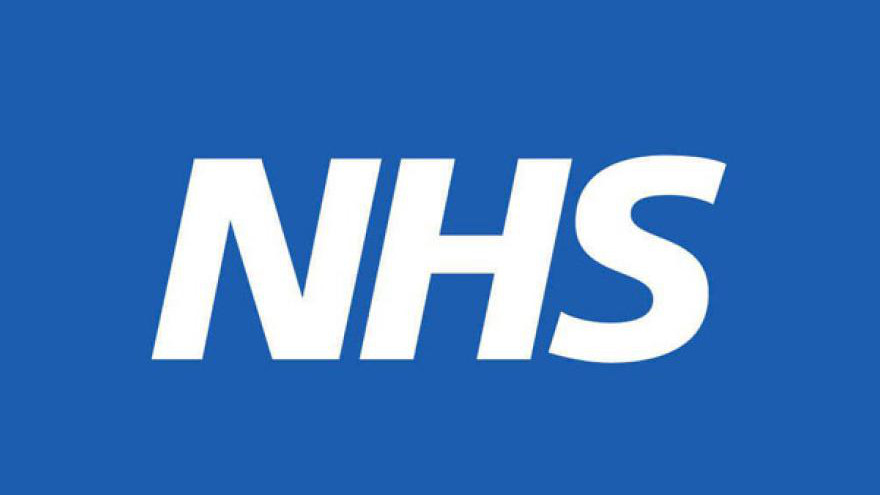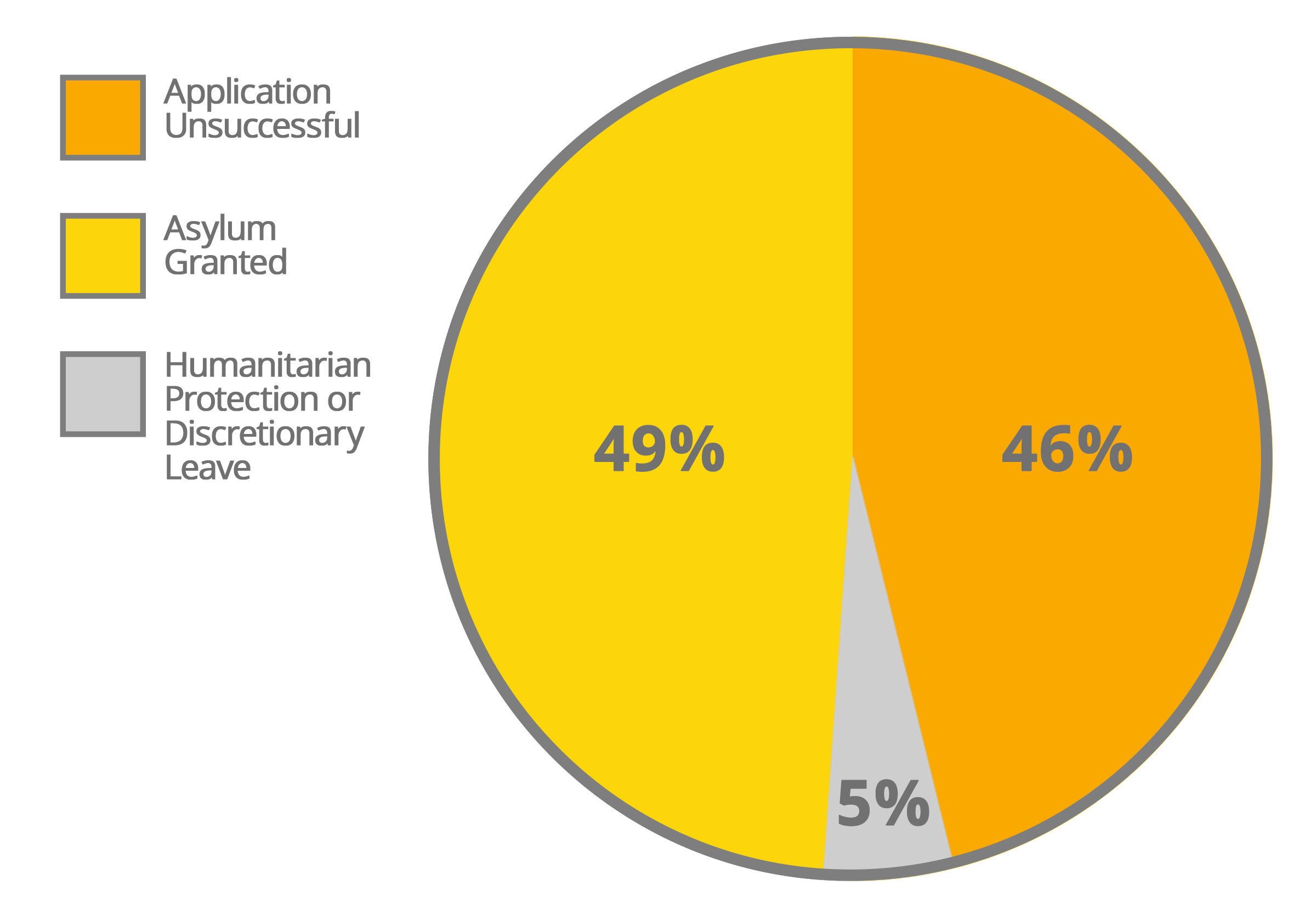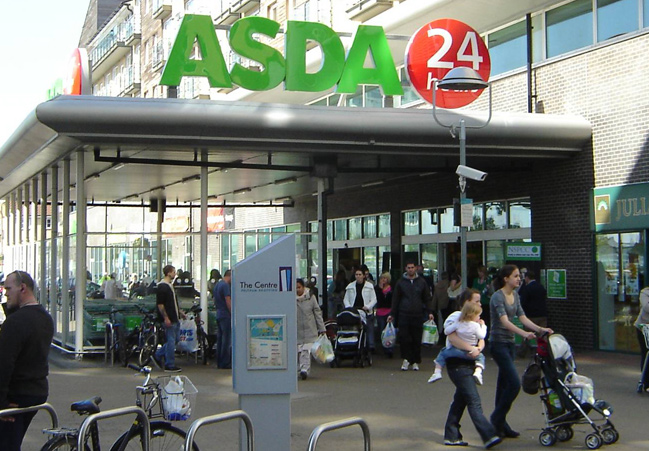Myths about migration
The health care worker can challenge commonly held misconceptions about refugees, asylum seekers and migrants.
Common myths about migration
There are many myths about migration and asylum - click these common ones to read the facts.
Facts
The UK has a far lower proportion of migrants than many other countries. 14% of the UK population was not born here - compared with nearly 30% in Switzerland, 20% in Austria and Sweden and 17% in Ireland.
The UK has relatively small numbers of asylum seekers and refugees. Northern Africa and Western Asia host around 46 per cent of the global number of refugees and asylum seekers, followed by sub-Saharan Africa (close to 21%).
References
United Nations: International Migrant Stock 2019 & International Migration 2019 report
Facts
The UK has a very tough set of immigration laws.
Most people who claim asylum are rejected as the burden of proof is on them to provide sufficient evidence to the UK authorities that they were persecuted despite coming from war-torn countries.
The UK has adopted a points system for economic migrants which only allow a small number of economic migrants with key skills to enter the country.
Facts
Asylum seekers are unaware of the benefits system before they come to the UK.
They are not allowed to work, so are dependent on asylum support and if their asylum claim fails they are not entitled to any public funds.
Most other migrants have to establish residency before they can claim benefits which can be a long process.
Reference
Refugee Council: Chance or Choice - Understanding Why Asylum-Seekers come to the UK
Facts
Asylum-seekers are allocated housing on a no-choice basis. They are NOT free to choose where they live.
Most refugees are single men and do not qualify for social housing.
Refugee families are judged by the same criteria as UK citizens.
Most other migrants do not qualify for social housing until they have established residency.
Facts
Asylum-seekers leave their country of origin, fleeing war-torn countries and seeking safety.
Other migrants come for work or their family.
There is no evidence whatsoever that there are higher rates of terrorism or criminality amongst migrant workers and people seeking asylum.
Facts
Any negative impacts of immigration on wages and employment rates are modest at most and immigration is beneficial to long term economic growth and competitiveness.
Migrants have made significant contributions to the UK in sport, science, medicine, economics and politics.
Most migrants are not entitled to free health care or to access UK benefits.
Reference
Immigration and the Labour Market: Theory, evidence and policy - Migration Policy Institute
Facts
There is no such thing as an “illegal” or “bogus” asylum seeker. Under international law, anyone has the right to apply for asylum in any country that has signed the 1951 Convention and to remain there until the authorities have assessed their claim.”
Some people do bypass immigration - but if they are seeking asylum they will register at the Home Office.
People trafficked into the UK are virtual slaves and will and will not be able to register either as workers or asylum seekers by the illegal gangs that control prostitution or sweat shops.
Reference
Tell it like it is - The Truth About Asylum - Refugee Council.
Myths in more detail
Asylum seekers are health tourists coming to the UK to get free NHS treatment
 Fact: Asylum seekers come to the UK to seek refuge, fleeing the most unimaginable torture and persecution. Some will require medical and psychotherapeutic help - but this is as a result of their experiences not a reason for coming here.
Fact: Asylum seekers come to the UK to seek refuge, fleeing the most unimaginable torture and persecution. Some will require medical and psychotherapeutic help - but this is as a result of their experiences not a reason for coming here.
There is no evidence that people come to the UK because of their health or HIV status, and clinicians and charities report that people they see are unaware of their status until they are diagnosed.
The top 10 countries of origin in 2019 (the last accurate figures issued by the UN) for the asylum applications in the UK were:
These are all countries with existing and ongoing civil strife, war or oppression.

The UK is not a 'soft touch'
The asylum decisions taken in the first quarter of 2019 show that:
- 46 per cent of initial decisions were unsuccessful
- 49 per cent of initial decisions were to grant asylum
- 5 per cent of initial decisions were to grant Humanitarian Protection (HP) or Discretionary Leave
Many refusals go to appeal and recent statistics show that over two thirds of appeals are successful.
How to myth bust
Training
- Find out what really happens in foreign countries and the facts about numbers of people and where they come from.
- Look out for articles and news headlines - cut them and keep them - research the background - check the facts!
- Don’t forward or repeat malicious emails or texts, check out the facts first!
Case study: The Roma Asda text and email myth
 "Last night at Asda, Manchester, a little girl of three went missing. Asda’s policy is to lock all the doors if this happens. The girl was found in the toilet with two Romanian women, one was shaving her head and the other was putting her in boy’s clothes. The information was given to me by an Asda employee - please be extra careful when you are out and about, pass this on to anyone with young children..."
"Last night at Asda, Manchester, a little girl of three went missing. Asda’s policy is to lock all the doors if this happens. The girl was found in the toilet with two Romanian women, one was shaving her head and the other was putting her in boy’s clothes. The information was given to me by an Asda employee - please be extra careful when you are out and about, pass this on to anyone with young children..."
Concerned parents, social workers and health staff have been duped and circulated this email that plays on stereotypes and fears.
A simple check on the Asda website revealed that: “it is a hoax story that has appeared regularly in a variety of guises, both in the UK and the US over the last ten years... it’s as untrue today as it has ever been.”
(your.asda.com - June 2011)
Keep up to date - use these sites:
Refugee Council
The Refugee Council is the largest organisation in the UK working with asylum seekers and refugees. They not only give direct help and support, but also work with asylum seekers and refugees to ensure their needs and concerns are addressed.
Refugee Action
Refugee Action works to: provide high quality reception, advice and information to refugees and asylum seekers; promote the development of refugee communities; improve access to employment and mainstream services, and enhance opportunities for refugees and asylum seekers; raise awareness, influence policy and campaign for refugee rights.
Summary
In this unit we have identified several of the common re-occurring myths about migrants and refugees.
- Myths will recirculate - in many different forms - it is up to you as a health care worker to ensure that these myths about migration do not affect how your patients are perceived and treated in your workplace.
- Check your Equal Opportunities policy and local procedures for how to deal with discrimination in the workplace.
